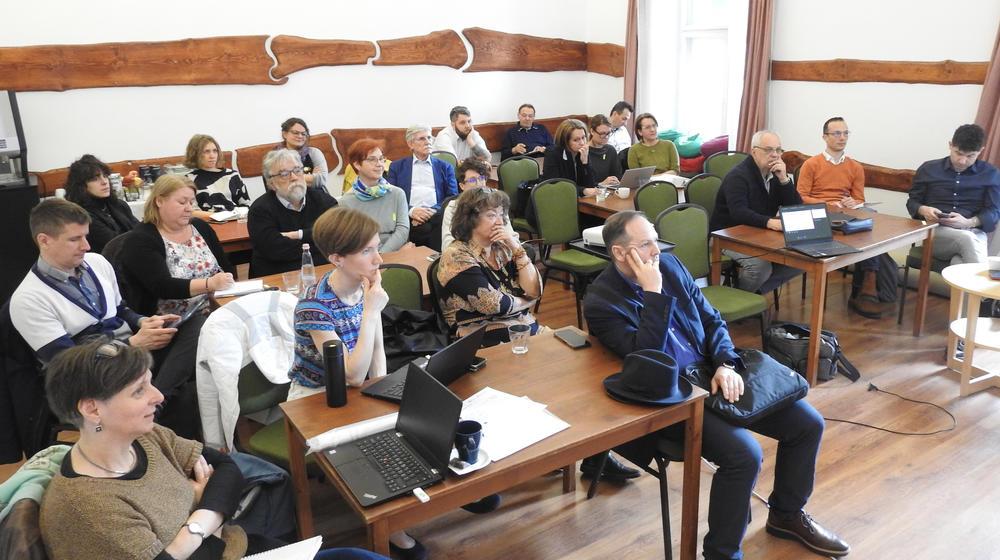Do green policies affect housing equity in Hungary?
Within the ReHousIn – Reducing Housing Inequalities project, Policy Labs allow to enrich research with field experience of practitioners. Two Policy Labs will be held in all nine countries where the ReHousIn’s research is conducted. They serve as platforms to engage with a wide range of stakeholder groups, including representatives of national, regional and local governments, academia, civil society and private sector.
In Hungary, the first ReHousIn Policy Lab organised by the Metropolitan Research Institute (MRI) took place in Budapest on 1 April 2025. The event gathered actors working on housing and green policies, including energy efficient retrofitting, nature-based solutions and densification of urban areas.
Guided by the MRI team, participants discussed the negative externalities of green investments, such as green gentrification and renoviction, strongly experienced in Western European cities. At the same time, the workshop highlighted several housing-related specificities of the Central European region. According to the participants, weak green policies in Hungary might be more harmful – including to the vulnerable groups – than the possible externalities of their implementation. Secondly, due to the ownership-dominated structure of the Hungarian housing stock, social movements are less effective in slowing down gentrification and renoviction compared to European cities with high rate of rental housing.
The Policy Lab also brought forward several conclusions related to the role of local governments. Hungarian municipalities lack the tools to mitigate the potential negative impacts of green investments on housing situation, as they own less than 2.5% of the housing stock. Due to general centralisation trends in the country, municipalities have fewer and fewer financial resources available, and they are becoming increasingly crowded out from many fields of public policies.
Publishing date:
